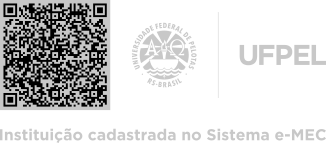Family Health
Phone number:
e-mail: famed@ufpel.edu.br
Website:
Address:
Presentation
Primary Health Care (PHC) is the “gateway” to the health system. It is characterized by the equitable utilization of health care resources, integrated care as well as easy access for the community (Starfield, 2002). Family Health is a key strategy for the implementation of this care model, which benefits society, families and citizens. The Family Health Strategy (FHS), first established to redesign primary health care under the principles of Brazil’s Unified Health System (SUS), is gaining relevance due to the increasing evidences of its greater suitability, performance and effectiveness compared to the traditional model (Facchini et.al., 2006).
Concerning the number of health care teams, FHS increased from 3,000, in 1998, to 32,000 active teams by the end of 2010 throughout the country. More than 80,000 graduated health care professionals are estimated to be involved in this strategy. Nevertheless, less than 5% of them hold a family health non-degree graduate certificate (MS, 2010).
The institutional challenge of this distance learning program is to provide access to an open university focused on professionals in continuing education, that is, one that understands that each student has their own time for learning. Thus, it is understood that the continuing education processes must adapt to this reality, leading the university to recognize that knowledge is built and rebuilt everyday by every person involved in the educational process and to appreciate the service, experience and previous knowledge of each learner.
The Program aims to enable all the professionals enrolled to achieve certain educational goals marked by the social need to expand the quality and equity of the health care provided for the community. Seen in these lines, advisor professors are the ones who mediate the learning processes set between students and the university. They work as bridges between different types of knowledge, each one with its legitimacy and practical usage.
This Program takes place in a virtual learning environment called Moodle. In this Internet-based environment, students engage in a relationship with the Program by interacting, collaborating, and advancing in their studies by committing to the different activities proposed.
Each student has an advisor professor responsible for the mediation of their learning process throughout the Program. This advisor monitors for activity completion, including the writing of the thesis (TCC) and students’ participation in different ambiences of the web-based platform, providing them with feedback.
Area of Concentration
Lines of Research
Study Plan
Faculty
Number of credits required
Study Plan
Faculty
Number of credits required
Number of credits required
Total credit hours: 374 hours
On-campus credit hours: 10 hours
Off-campus credit hours: 364 hours
